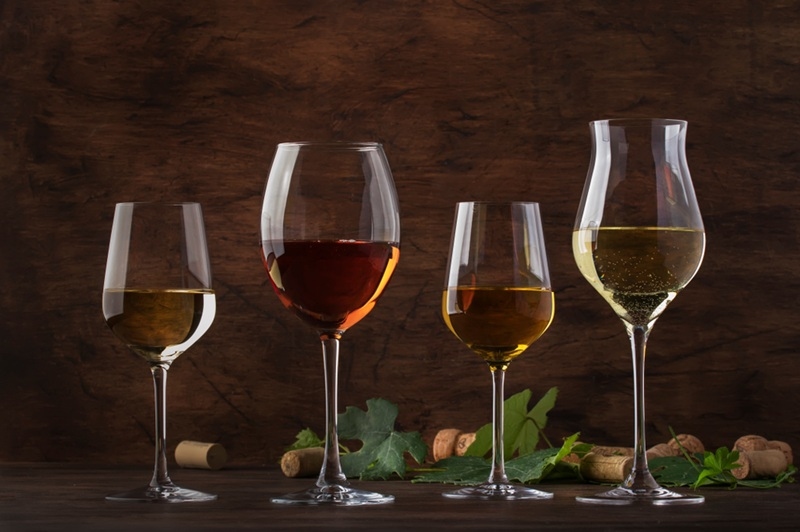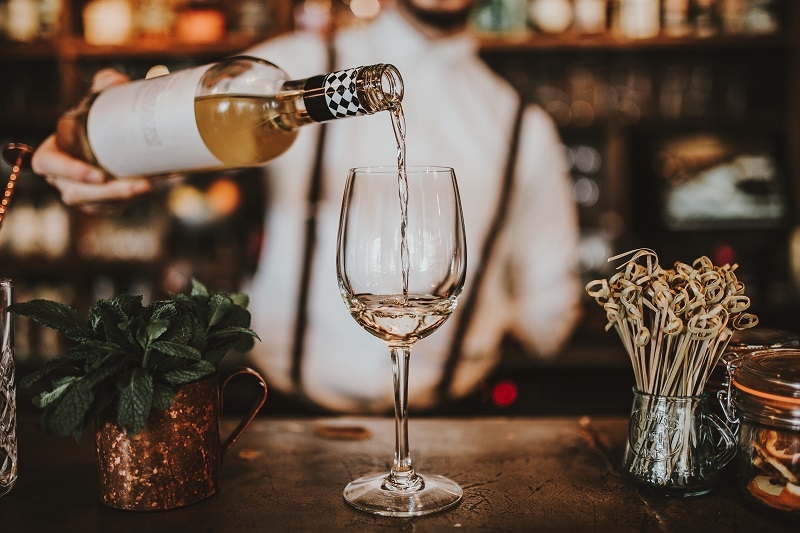Discover Best Of Biodynamic Wine And Its Unique Features

In the ever-evolving landscape of winemaking, the pursuit of sustainability and eco-conscious practices has led to the rise of biodynamic farming and, subsequently, the production of biodynamic wine. This comprehensive guide explores the intricate details of biodynamic agriculture, its historical roots, the winemaking process, and the distinctive characteristics that set biodynamic wine apart in a world brimming with options.
What is Biodynamic Farming?
Biodynamic farming goes beyond conventional agricultural methods, envisioning the farm as a self-sustaining organism. This holistic approach, pioneered by Austrian philosopher Rudolf Steiner in the early 20th century, aims to cultivate an interconnected relationship between the soil, plants, animals, and celestial forces. Biodynamic farming embraces sustainability, biodiversity, and cosmic awareness to create a balanced and resilient agricultural system.
History of Biodynamic Farming
Rudolf Steiner's introduction of biodynamic farming principles in a series of lectures in 1924 marked a turning point in agricultural philosophy. In response to the declining fertility of soils and concerns about the nutritional quality of food, Steiner proposed a holistic approach that addressed the interconnectedness of the elements within a farm. His teachings laid the foundation for biodynamic farming, emphasizing the importance of cosmic rhythms, biodiversity, and composting.
How do you make Biodynamic Wine?
Compost Preparation
Biodynamic farmers create compost from a mixture of organic materials, enhancing soil fertility and structure. This nutrient-rich compost is then applied to the vineyard, promoting the health and vitality of the vines.
Special Preparations
Biodynamic preparations, such as 500 (horn manure) and 501 (horn silica), play a pivotal role in biodynamic winemaking. Horn manure preparation involves burying cow horns filled with manure in the vineyard, stimulating microbial activity and enhancing soil fertility.
Lunar and Celestial Calendar
Biodynamic winemakers meticulously follow a biodynamic calendar, aligning critical vineyard tasks with lunar and celestial cycles. From planting and pruning to harvesting, each activity is synchronized with cosmic rhythms to optimize grape quality and flavor.
Biodiversity
Biodynamic vineyards emphasize biodiversity, encouraging the presence of diverse plant and animal species. Cover crops and companion planting contribute to a balanced ecosystem, naturally enhancing soil health and pest control.
Minimal Intervention
Biodynamic winemakers strive to intervene minimally in the winemaking process, allowing the wine to express its unique terroir. This approach often involves spontaneous fermentation, the use of indigenous yeast, and avoiding additives and filtration.
Why is there a Cow Horn in the Vineyard?

One of the most distinctive features of biodynamic farming is cow horns in the vineyard. This practice, known as horn manure preparation (500), involves filling cow horns with manure, burying them in the soil, and allowing them to ferment over the winter. The resulting substance is then spread across the vineyard to enhance soil fertility, microbial activity, and overall vitality. The use of cow horns in this process is rooted in Steiner's belief in harnessing cosmic forces to infuse energy into the soil.
Taste Difference in Biodynamic Wine
Biodynamic wines are often celebrated for their unique and expressive taste profiles, emphasizing terroir and the holistic approach to vineyard management. Enthusiasts argue that integrating biodynamic principles results in wines that are more vibrant, nuanced, and reflective of the specific environmental conditions in which the grapes were cultivated. The holistic practices of biodynamic farming, including composting, biodynamic preparations, and alignment with cosmic rhythms, contribute to the overall balance and harmony of the wine.
Must Read: Exploring the Delights of Low Alcohol Wine: Things To Know
Biodynamic Preparations Used in the Vineyard
Biodynamic preparations, such as 500 and 501, are integral to the success of biodynamic winemaking. These preparations are applied with precision, each serving a specific purpose in
500 (Horn Manure): Enhances soil fertility and microbial activity, promoting nutrient absorption by the vines.
501 (Horn Silica): Stimulates light absorption in the vine, improving photosynthesis and overall plant vitality.
Wine Brands Making Biodynamic Wine
Domaine de la Romane-Conti (Burgundy, France)
Renowned for its meticulous biodynamic practices, this winery produces some of the world's most sought-after wines.
Quinta do Crasto (Douro Valley, Portugal)
Embracing biodynamic principles, Quinta do Crasto has garnered acclaim for its commitment to sustainable and quality winemaking.
Seresin Estate (Marlborough, New Zealand)
Combining organic and biodynamic practices, Seresin Estate crafts expressive and terroir-driven wines.
Benziger Family Winery (Napa Valley, California, USA)
A pioneer in biodynamic winemaking, Benziger Family Winery exemplifies a dedication to environmental stewardship.
Chteau Pontet-Canet (Bordeaux, France)
This prestigious estate has transitioned to biodynamic farming, producing wines that showcase the estate's unique terroir.
Cullen Wines (Margaret River, Australia)
Renowned for its commitment to biodynamic farming, Cullen Wines produces exceptional wines that reflect the purity of their vineyards.
Lpez de Heredia (Rioja, Spain)
Embracing traditional winemaking methods and biodynamic principles, Lpez de Heredia crafts wines with a timeless elegance.
Montinore Estate (Willamette Valley, Oregon, USA)
Committed to organic and biodynamic practices, Montinore Estate produces terroir-driven wines in the heart of Oregon's wine country.
Bonny Doon Vineyard (California, USA)
An early advocate of biodynamic farming, Bonny Doon Vineyard produces wines that showcase the unique character of the vineyards.
Sylvain Pataille (Burgundy, France)
Sylvain Pataille is known for his meticulous biodynamic practices, crafting wines that express the nuances of Burgundy's diverse terroirs.
Is Biodynamic Wine the Same as Organic Wine?
While biodynamic and organic wines share a commitment to sustainability and minimal chemical intervention, there are distinct differences. Organic farming avoids synthetic chemicals and genetically modified organisms, whereas biodynamic farming encompasses a broader holistic approach. Biodynamic practices integrate spiritual and cosmic considerations, using specific preparations and following a celestial calendar. The emphasis on cosmic rhythms, biodiversity, and the use of biodynamic preparations sets biodynamic wine apart from its organic counterpart.
Also Read: Exploring Delicious Vegan Wines: The Cruelty-Free Delights
Conclusion
Biodynamic wine emerges as a captivating blend of ancient wisdom and modern craftsmanship, showcasing the potential of sustainable, holistic winemaking. Biodynamic wines are poised to play an increasingly influential role in the dynamic world of viticulture. A profound connection between the vineyard and the cosmos, biodynamic winemaking is to nature's wisdom's enduring power in crafting exceptional and memorable wines.
FAQs
Is biodynamic wine better for the environment?
Biodynamic practices contribute to overall environmental sustainability by promoting biodiversity, minimizing chemical inputs, and creating a balanced ecosystem within the vineyard.
Are biodynamic wines more expensive?
The labor-intensive nature of biodynamic farming and winemaking can contribute to slightly higher production costs, making biodynamic wines more expensive than conventionally produced counterparts.
Do biodynamic wines contain sulfites?
While biodynamic wines may contain sulfites, the use of additives is generally minimized. Some producers even argue for lower sulfite levels in biodynamic wines than conventional ones.
Can you taste the difference in biodynamic wines?
Enthusiasts often claim that biodynamic wines offer a more vibrant and expressive taste, reflecting the unique terroir of the vineyard and the holistic approach to winemaking.
How long does it take for a vineyard to transition to biodynamic farming?
Transitioning to biodynamic farming is a gradual process that typically takes three years or more.
Do biodynamic winemakers use any technology in the winemaking process?
While biodynamic winemakers emphasize minimal intervention, some may use modern technology selectively, such as temperature control during fermentation or gravity-fed systems.
This content was created by AI
No keywords available
-1717753922-r.jpg)


